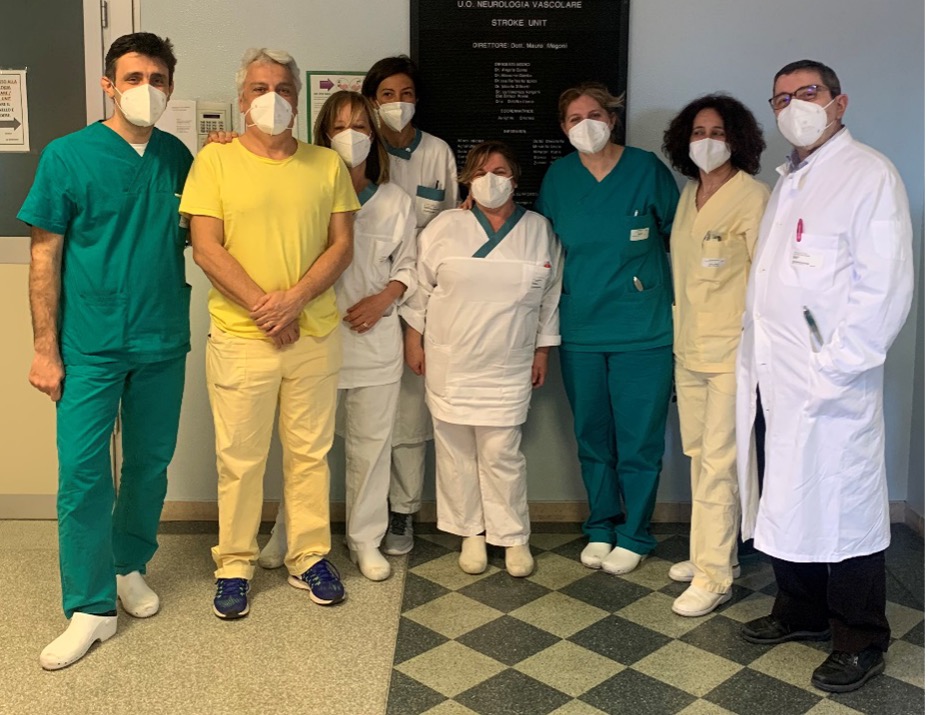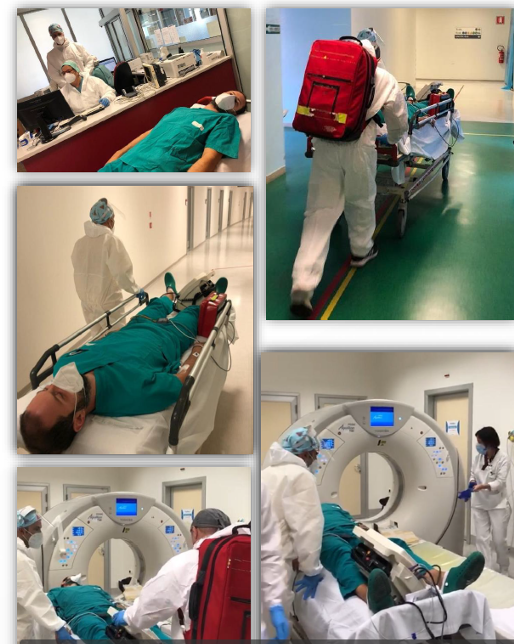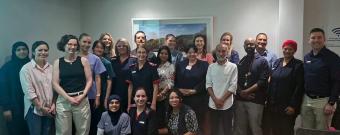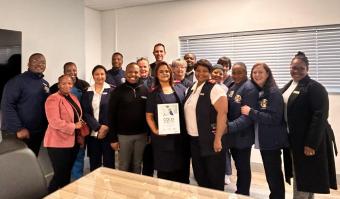No-one expected a stroke team in Italy’s Covid-hit Lombardy region to deliver an award-winning performance. But at the Civil Hospital of Brescia, a number of pre-pandemic interventions along with the close collaboration of neurologists and interventional neuroradiologists carried the day.

War broke out in Italy’s Lombardy region on 21 February 2020.
Within days schools, businesses and restaurants began to shut down, and the mayor of Milan, the regional capital, shuttered public offices. In another two weeks, all of Italy would be placed in a lockdown lasting two months, one week and two days.
Codogno, a small city south of Milan where the first case of locally acquired Covid-19 was confirmed, became notorious overnight as the epicentre of the Covid-19 pandemic in Europe. Patient No. 1 would survive, but tens of thousands didn’t as the virus tore through the provinces of Brescia and Bergamo before making its devastating way to the poorer south.
A six-euro bus ride to the northeast of Codogno, the Civil Hospital of Brescia was bearing the brunt of a suddenly overloaded healthcare system. Between 1 March and 31 May, over 500 healthcare workers at the hospital tested positive for Covid-19, with doctors and nurses the worst affected. The Lombardy Emergency Medical Services (AREU) were likewise fighting a hard battle but holding on as calls spiked and patients crowded the hospital hallways.
Covid-19 splits the stroke pathway
A training hospital with over 1,500 beds, the Civil Hospital of Brescia counted among its recent accomplishments a noteworthy increase in the number of patients with acute stroke benefiting from systemic thrombolysis and endovascular thrombectomy.
Its Unit of Vascular Neurology was founded in 2005 and is the referral centre for the management of acute stroke of the entire province of Brescia, a vast territory with about 1,000,000 inhabitants. Its rising rate of recanalisation treatment offered to stroke patients was due in part to the expanded time windows and clinical indications for these therapies – but equally significant were the round-the-clock operationality of the neurological ward, the availability of specialist stroke nurses and above all the close collaboration between neurologists and interventional neuroradiologists that facilitated the evaluation of neuroimaging, including from peripheral hospitals, throughout the day.
For the time being the Civil Hospital of Brescia however resembled a war zone as physicians fought shoulder to shoulder against the virus that was rolling through Lombardy like a tsunami. Not only was access to the emergency room extremely limited, but many cases of stroke among Covid-positive patients presented with a worse prognosis than in patients not infected with the virus.
The need to differentiate between patients with and without the virus made management of acute stroke extremely complex and lead to the activation of specific protocols for stroke patients. These entailed separating the paths and creating a “gray” path from the ER to the stroke unit where a separate room was set up for patients waiting for the result of the swab.

Achieving excellence in a crisis
At the height of the crisis, no-one could have predicted that a hospital in pandemic-stricken Northern Italy would close out the year with an award for excellence in stroke treatment. And yet at the end of 2020 the stroke team at the Civil Hospital of Brescia laid claim to its first ESO Angels Award, achieved in quarter 4 when Covid-related deaths in Italy peaked at almost 1,000 a day. In the course of a year that tested healthcare services beyond measure, the hospital had administered recanalisation therapies to no fewer than 162 patients including 73 endovascular thrombectomy interventions, recording door-to-treatment times that met the criteria for gold status.
Dr. Nicola Gilberti attributes this unexpected success to changes to the stroke pathway that had reduced treatment times over several years. These included pre-notification of the neurologist on call by AREU’s operation centre that a probable case of stroke was on the way, examination of the patient by the neurologist at triage, the immediate and collegial evaluation of the CT scan by the neurologist and the interventional neuroradiologist for optimal therapeutic decision-making, and, where the clinical case allowed, the beginning of thrombolysis before receiving the hematochemical results.
The journey continues
“Despite everything, and thanks to the support of Angels, we wanted to continue optimising the stroke path,” Dr Gilberti says. “This meant carving out the space to organise meetings for the discussion of clinical cases, a practical simulation that helped us identify possible improvement actions, training of stroke unit nurses and participating in national monitoring programs such as MonitorISA and international programmes such as the ESO-Angels Awards.”
Having proved their mettle in a crisis the stroke team at the Civil Hospital of Brescia are continuing on their journey to improved stroke care. Their door-to-treatment times have remained stable at the level required for gold status and it is acknowledged that moving still further up the ranks may require substantial changes in the functional and structural organisation of the hospital.
The most important resource is however already in place – a motivated team that has shown itself equal to the biggest public health challenge in over a century.



